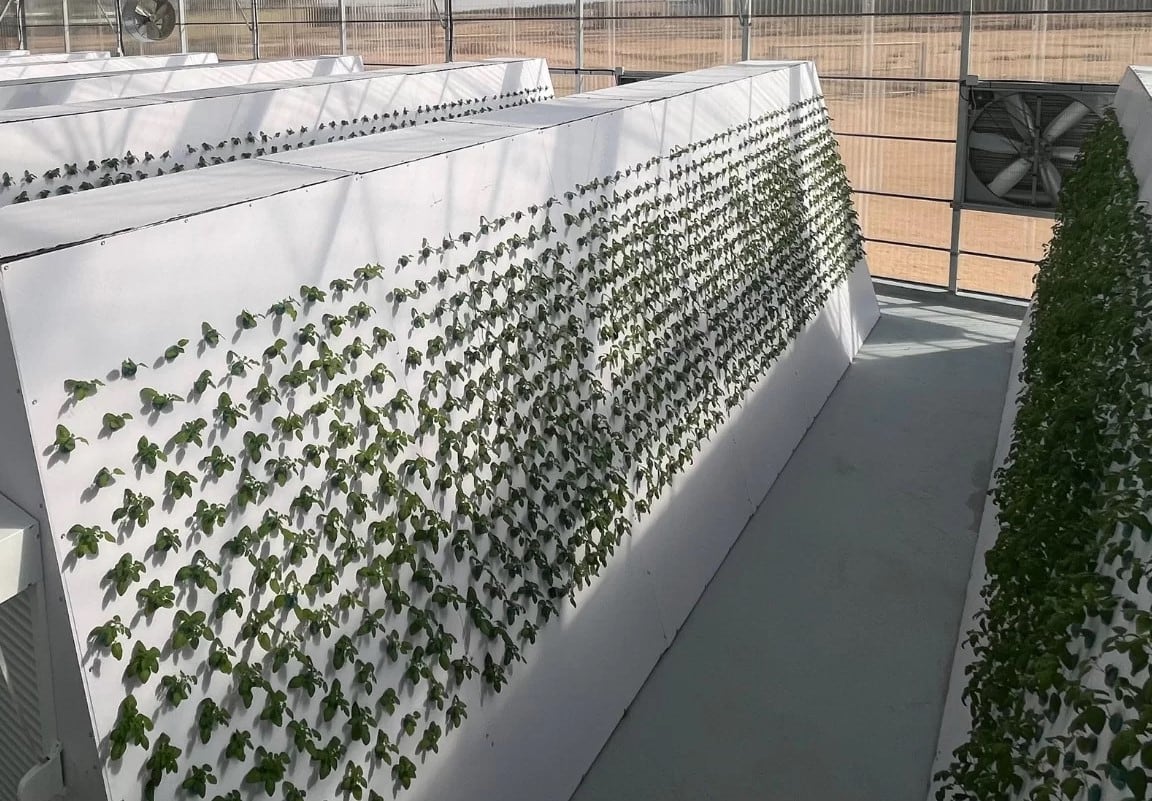Potatoes enjoy wide popularity across the world, and it is no different in Asia. However, potato producers in the region are bottlenecked by the lack of quality Generation 0 (G0) and Generation 1 (G1) potatoes.
Asian producers often rely on conventional farming methods, which start at G2 or later, making their potatoes more susceptible to disease – especially in warmer, humid climates.
To complicate matters further, potato producers have limited confidence in local sources of G0 and G1 seeds.
“The potato crop is at risk because they don’t start off with a good certified seed. That’s why we are focusing on the G0 seed,” said Michael Ruggier, founder and CEO of Airponix.
“There’s a general sense of distrust because what we’ve been told is that sometimes people can be buying a G4 when it’s actually a G7… Supply is going down as potatoes cannot multiple because of diseases. At the same time, the demand for fries and crisps is going up. So there’s immediate need for more of the original G0 seeds."
Airponix was among the startups exhibiting at this year’s World Agri-Tech Innovation Summit in London, which took place on September 22 and 23.
At the event, Ruggier told AgTechNavigator that the company has been approached by several interested parties from Asia, which is driving the company to expand to Australia.
“There’s a demand for potato seeds from Australia because they trust the certification,” he said.
Australia’s potato certification is awarded by organisations such as the Australian Seed Potato Certification Authority (AuSPICA), Victorian Certified Seed Potato Authority (ViCSPA), and Tasmanian Certified Seed Potato Scheme (TasSeed).
Find out more about why potato supply is at risk in our video below:
A soilless system
To produce crops in a cleaner, more sustainable, and controllable environment, Airponix developed its fog generation system, technology that enables crop cultivation without soil.
The crops are cultivated in a precisely controlled aeroponic environment, ensuring reduced pesticide use while optimised yields.
“This is a radical way of growing food crops with a minimum of inputs. It’s completely soilless as we are growing on these structures with the roots exposed. Our main unique selling proposition is our fog, which we created to surround the exposed roots. It fills the chamber, surrounding the roots and letting them absorb what they need when they need it. Nothing’s wasted,” said Ruggier.
By growing crops entirely soilless, this system removes the risk of soil-borne pests and diseases.
“Because it is all exposed, you can see all the potatoes and can harvest them exactly at the size you need,” said Ruggier.
He added: “The way we grow potatoes now is so old-fashioned. It’s just in peat and when you harvest, you just get one go at it. Some may be too small to be useful, some may be too big. You may get six or eight at the right size, it’s just a waste.”
The company has a 940-square metre facility in Saudi Arabia that houses 33,000 potato plants.
“We grow vertically at very high density, using natural light. Just three cubic metres of water are enough for 33,000 potato plants. Our simple A-frame structures are reusable year after year. Inside, we can control the environment perfectly, giving the roots exactly what they need. When the tubers reach the right size, they’re ready to harvest—two people can pick 1,000 in just 15 minutes. The good news is that when you pick the tubers, the plant produces more because it’s losing its tubers. I don’t think you can find any more effective way of growing,” said Ruggier.
Moving forward, the company is working to expand further in the Middle Eastern region, said Ruggier.
“They import all their seeds, so they are vulnerable. They often get bad quality, so growing their own, multiplying, and producing their owns seeds is highly strategic. Next year, we should have another facility up and running in the MENA region and hopefully, one in Australia. Then we can branch out into other crops.”


